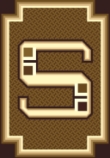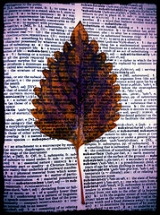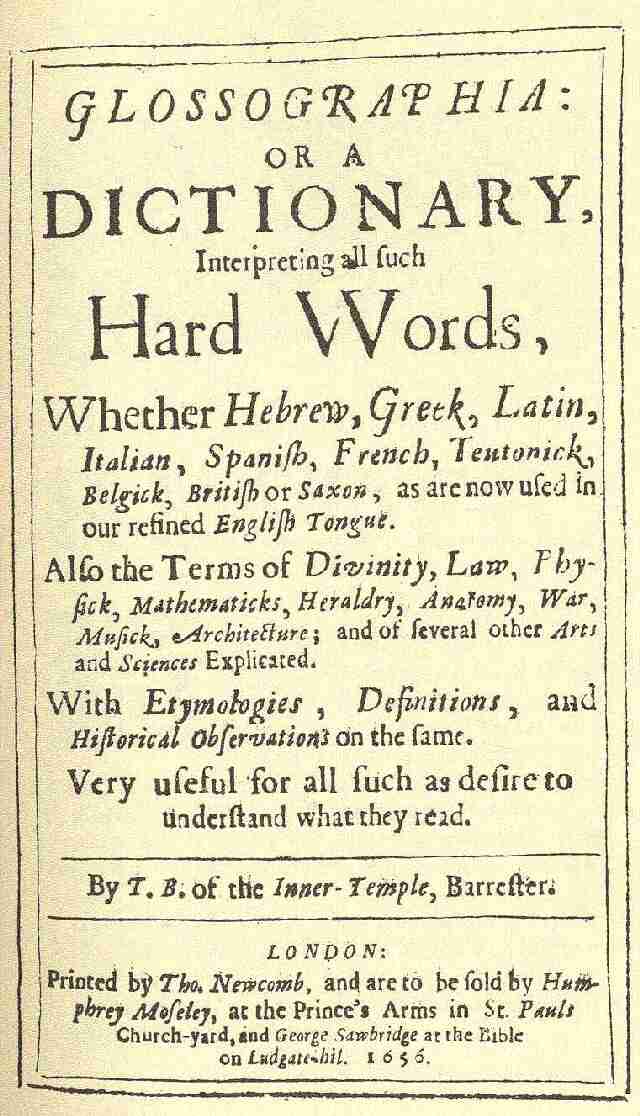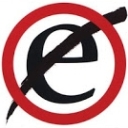
.
Word Finding Tips
Plenty of people use the Phrontistery to find a word or its definition. That's great, and if it works, all the better. At the same time, people often e-mail me with queries about an unusual word (sometimes with very little information). While I'm more than happy to answer these inquiries, and always enjoy a challenge, I don't always have the time to deal with matters expediently (so you may have to wait a while for a reply). Furthermore, it's not as if I have all of the words in my lists memorized; my working vocabulary is probably little greater than most university-educated people. Most of the time, I use a select group of resources - in print and online - to help me. This page reveals, for the first time, a few simple tips that should, in most cases, let you find the information you want quickly and easily. Happy word-hunting!
1) Dictionaries
The Internet is a great tool, but it is always a good idea to have one or more print dictionaries at hand for easy reference. The ones I keep on hand are the The Chambers Dictionary and Webster's Encyclopedic Unabridged Dictionary of the English Language, along with a CD version of Merriam-Webster's Collegiate Dictionary. There are many other good ones, but if the words you generally look for are obscure, you should avoid abridged or pocket paperback dictionaries. You should always, always look up your word in a dictionary first. Remember that many words are misspelled or have alternate spellings, so check around a little bit.
2) Search Engines
If you know the correct spelling of a word and want to know its meaning, you should enter it into a major search engine. I recommend Google, which indexes over 2 billion web pages and does a good job of finding relevant material. If your word exists, it will certainly have been used somewhere on the Web. This is a good tool for finding new words (less than 20 years old) that may not have found their way into dictionaries yet.
3) Onelook.com
While I love the Phrontistery, I am under no illusions as to its purpose on the Internet. While there are a number of very useful, fully searchable dictionary sites that you could try, I have found that only one is needed. OneLook is a searchable database containing all the words found in over 700 online dictionaries, including all the big names like dictionary.com, allwords.com, etc., as well as various specialized or technical dictionaries). You can put in a word or portion thereof (using wildcards) and find all the dictionaries that contain words meeting your criteria. It also has a reverse dictionary feature that allows you to find many words given only part of a definition or related concepts. This is an extraordinary service and is entirely free.
4) The Electronic Alveary
A very useful tool for crossword solvers, one that I have been using for several years, is The Electronic Alveary / TEA Crossword Helper, which can be downloaded for free in a limited word-list evaluation version or purchased online. It is the ultimate tool for wordplay enthusiasts, making it easy to find words using wildcards for easy crossword puzzling, as well as finding anagrams and palindromes. I highly recommend that you get a copy and use it in conjunction with the tools mentioned above.
5) OED - The King of Dictionaries
I mention this resource last because it may be hard to find and use for the ordinary person: the Oxford English Dictionary. If you have access to a university library, you will be able to see the 20-volume monstrosity that is the world's largest dictionary, covering all English words ever used from 1066 to the present day. It is much too large and expensive for home and office use. However, if you are a student or have access to a university library, you may have access to the online edition, which is fully searchable and thus incredibly useful.
I hope you have found this site to be useful. If you have any corrections, additions, or comments, please contact me. Please note that I am not able to respond to all requests. Please consult a major dictionary before e-mailing your query. All material on this page © 1996-2021 Stephen Chrisomalis. Links to this page may be made without permission.








